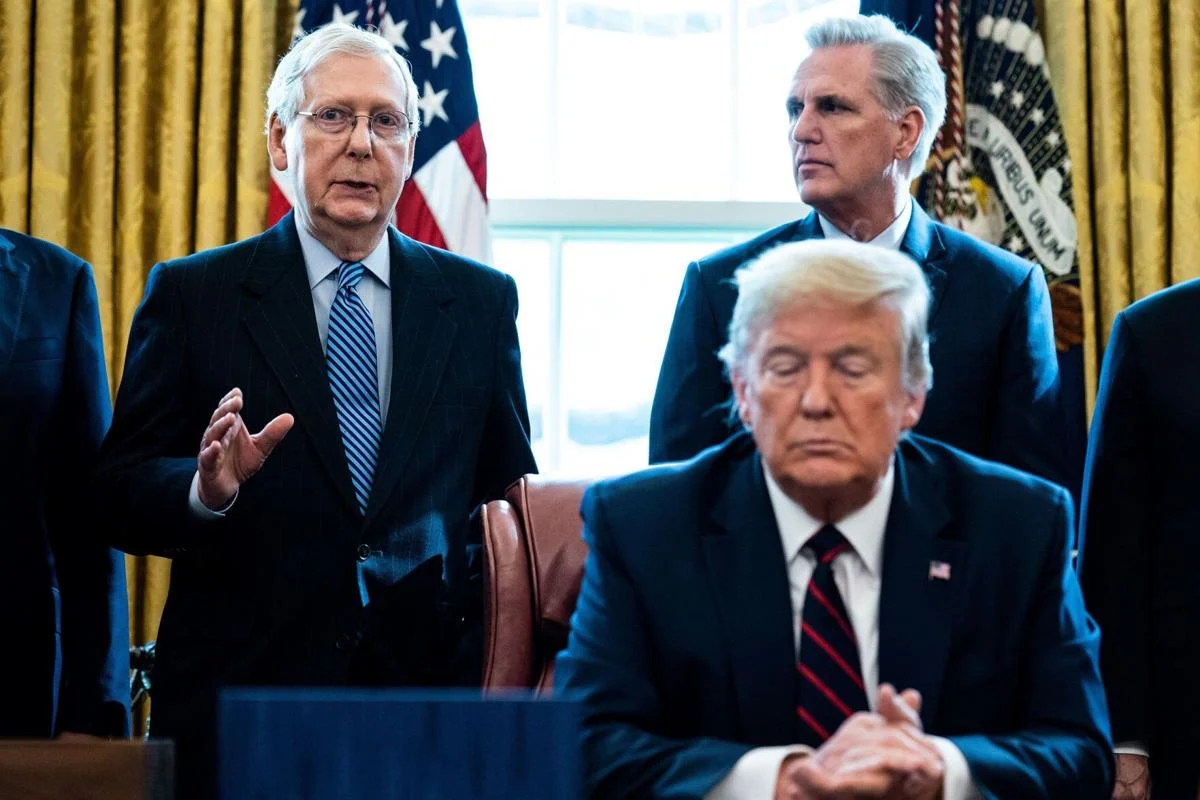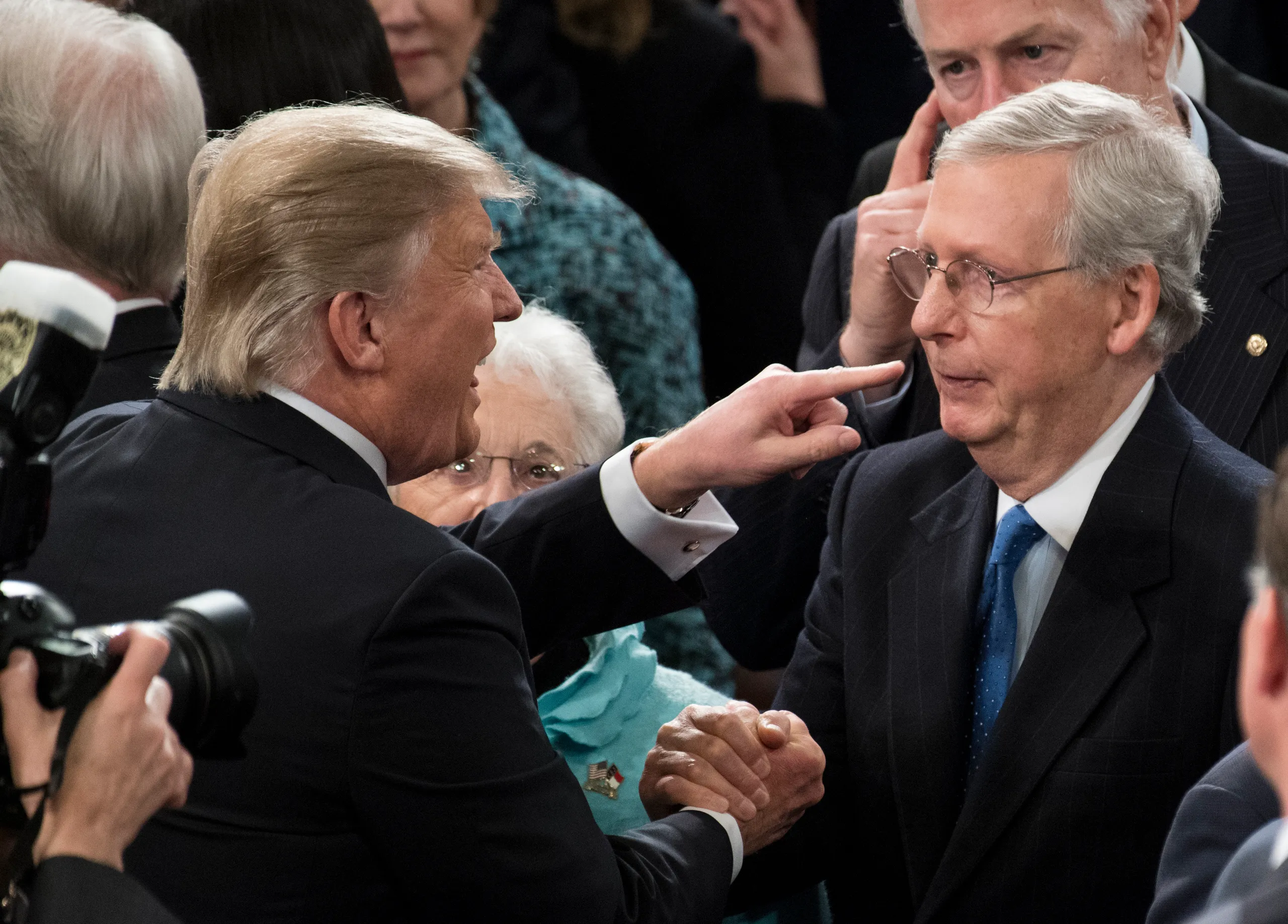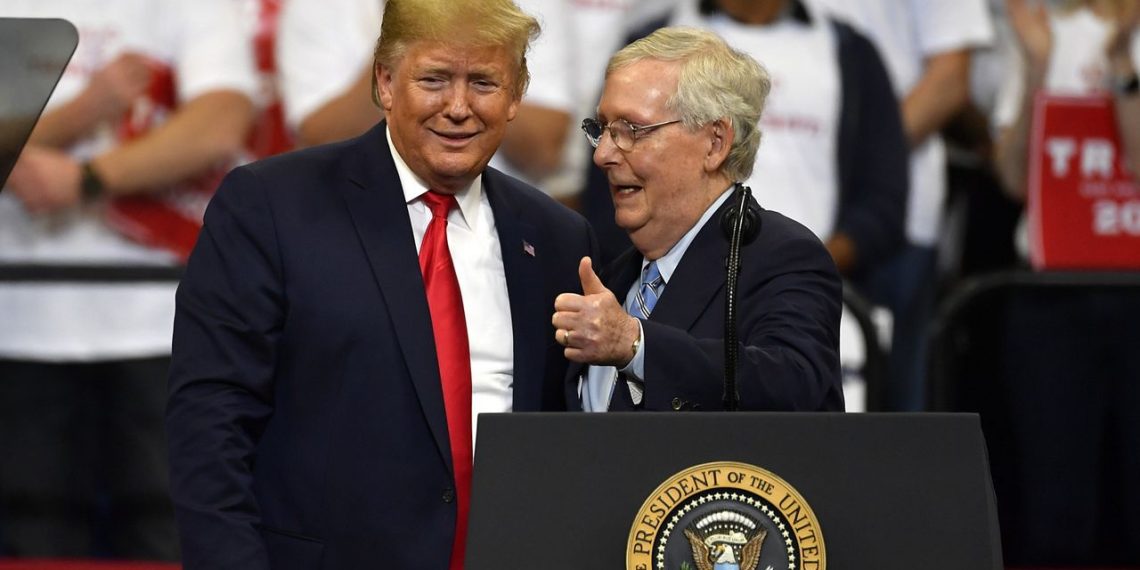Senate Minority Leader Mitch McConnell, a prominent figure in the Republican Party, declared his intention to support Donald Trump‘s candidacy in the upcoming 2024 presidential election, marking a significant shift in their previously strained relationship.
In a statement, McConnell emphasized Trump’s appeal among Republican voters, affirming, “Former President Trump has earned the requisite support of Republican voters to be our nominee for President of the United States.”
This announcement underscores McConnell‘s acknowledgment of Trump’s influence within the party and his commitment to rally behind the former president.

McConnell’s decision to endorse Trump follows discussions between his confidant Josh Holmes and Trump campaign strategist Chris LaCivita regarding collaboration on U.S. Senate races.
Despite McConnell’s past criticism of Trump, particularly in the aftermath of the Capitol riot on January 6, 2020, his endorsement reflects a strategic alignment aimed at maximizing Republican success in upcoming elections.
The timing of McConnell’s announcement coincides with Nikki Haley‘s suspension of her GOP primary bid after a lackluster performance in the Super Tuesday states.
While McConnell has not directly communicated with Trump since 2020, his endorsement signals a broader trend of Republican leaders aligning with Trump ahead of the 2024 election.

McConnell’s decision has drawn mixed reactions within the Republican Party. Some, like Republican strategist Sarah Longwell, have criticized McConnell’s support for Trump, viewing it as a capitulation to the former president’s influence.
Conversely, others view McConnell’s endorsement as a pragmatic move to foster unity within the GOP and position the party for electoral success.
As McConnell solidifies his support for Trump, it underscores the evolving dynamics within the Republican Party and sets the stage for a contentious yet pivotal presidential election in 2024.





